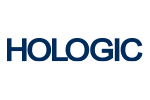For more than a year, the ASCP Board of Certification (BOC) has been planning to transition all MT(ASCP) and MT(ASCP
i) credentials to MLS(ASCP) and MLS(ASCP
i ), respectively. The transition will be complete by late 2022.
In this same time frame, individuals with the Molecular Pathology, MP(ASCP), credential will transition to Molecular Biology, MB(ASCP).
In alignment with these transitions, the BOC Board of Governors in November 2021 approved transitioning Cytotechnologist, CT(ASCP), to Cytologist, CT(ASCP), and Specialist in Cytotechnology, SCT(ASCP), to Specialist in Cytology, SCT(ASCP).
“Using and sharing these titles broadly will create a culture of solidarity and cohesion,” ASCP BOC BOG Chair Susan Graham, MS, MT(ASCP)SH
CM, wrote in the May 2022 BOC newsletter. “A unified front will strengthen the effectiveness of advocacy for our professionals . . . While the pandemic has raised the awareness of increasing needs of health professionals and the workforce crisis, legislative efforts continue to focus on the shortage of nurses and physicians. We need to be consistent in advocating for the inclusion of laboratory professionals in actions that help in the recruitment and retention of the healthcare workforce.”
“Providing recognition and visibility to the value laboratory professionals bring to the patients we serve resonates a spirit of advocacy, and highlights medical Laboratory Scientists as a unified specialty,” says Amy Spiczka, MS, HTL(ASCP)
CMSCT,MB
CM, CPHQ, Executive Director of the ASCP Board of Certification.
The ASCP BOC and the American Society for Clinical Laboratory Science (ASCLS) issued a position paper, Standardizing the Professional Title of Medical Laboratory Professionals, in spring 2021, that outlines the challenges the medical laboratory field has faced in gaining visibility and recognition for its essential contributions to the medical care team. The paper notes that while laboratory medicine is integral to diagnosis, treatment and patient care, the profession overall is not well understood by patients and health professionals. Few are aware of the extensive and rigorous training required to earn the MLS(ASCP) credential.
Importantly, the position statement asserts, “Interpretation of federal regulations governing standards for laboratory personnel has allowed those with insufficient laboratory-related education and training to perform moderate and complex testing, further diminishing the profession and confusing the healthcare community regarding required credentials for laboratory professionals. Another aspect to this problem is that many educational programs closed in the 1990s, resulting in a workforce shortage that has lasted more than 20 years. In response, managers and administrators have hired non-Medical Laboratory Scientist credentialed individuals to perform laboratory testing.”
The report goes on to explain that the laboratory profession’s range of credentials, coupled with how professionals refer to themselves, how others refer to them, are often inconsistent and contribute to the confusion.
“These factors contribute to a crisis in our professional identity not only within, but also external to the medical laboratory profession,” the report states. “Our name is important. Adopting a unified term is one step toward controlling our professional destiny. If we don’t refer to ourselves in a consistent, recognizable, professional manner, how can we expect the public and other health care professionals to regard us as a single profession, to acknowledge our professional identity, and to recognize the fundamental part we play in the health care team?”
The position paper was drafted by the ASCP BOC and the ASCLS, and endorsed by each of the BOC’s Sponsoring and Participating societies.
To read the full position paper, Standardizing the Professional Title of Medical Laboratory Professionals, click
here.
To read more articles from this issue of ePolicy, click
here. To learn more about ePolicy News and access past newsletters and articles, click
here.
For more information regarding ASCP's advocacy initiatives and policy positions, please contact ASCP's Center for Public Policy at (202) 408-1110.

ASCP ePolicy News is supported by an unrestricted grant from Hologic
